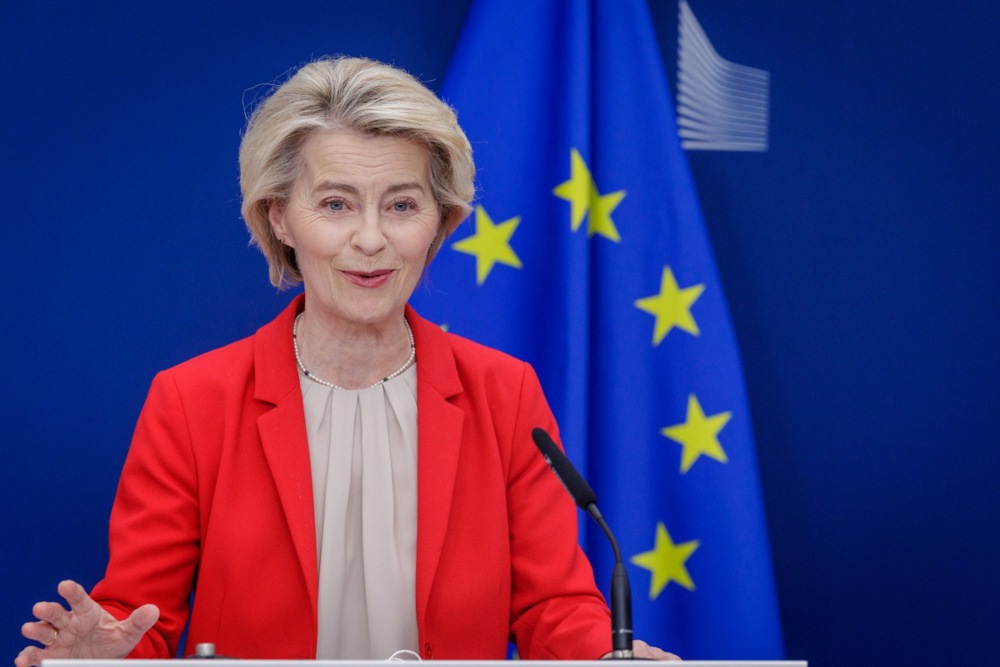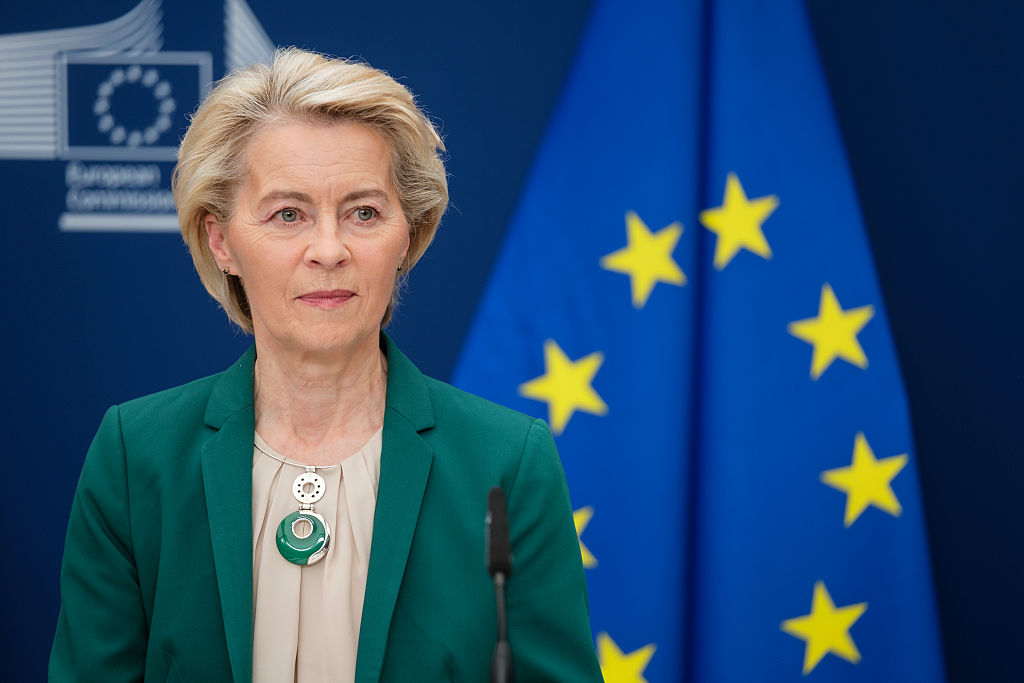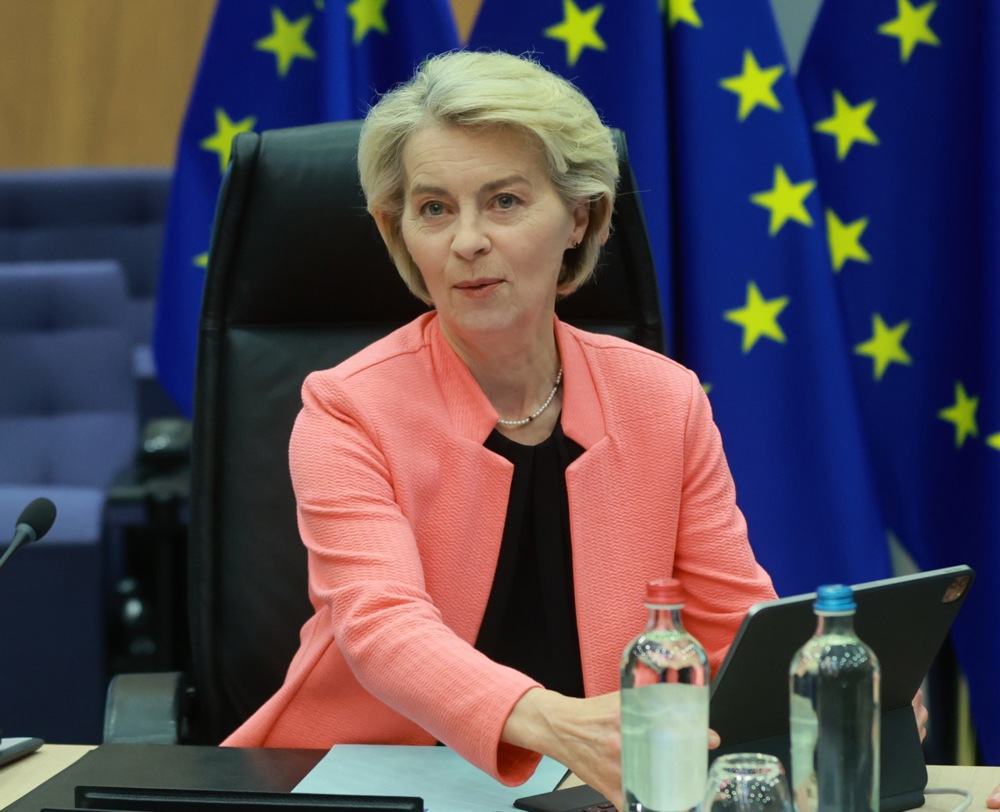Romanian MEP Gheorghe Piperea said he would initiate legal action against against European Commission President Ursula von der Leyen before the Court of Justice of the European Union, citing non-contractual liability and defamation.
Piperea, who led the recent motion of no-confidence against the EC chief, told Brussels Signal that the amount of damages to be asked was not determined yet but indicated they could be very significant.
In addition to the civil case against the EC filed with the Court of Justice of the European Union in Luxembourg, Piperea said he was also pursuing a penal defamation case against von der Leyen under French law. That action will be filed before the Strasbourg Criminal Court, based on provisions from French legislation, he said.
In the Luxembourg court, there was a cap on damages but in the Strasbourg court there was not, Piperea said.
“Unfortunately for European democracy,” he said, “von der Leyen has conflated her own political position with the institution she represents.
“In her speech on July 7, she claimed the European Commission was under attack, equating criticism of her leadership with being a ‘friend of Putin.’ That is unacceptable. She cannot place us on the same level as Lukashenko simply for opposing her.
“The role of Commission President is political and temporary, not eternal, and those who hold it are not above criticism. Confusing the institution with the person damages the EU’s democratic integrity,” he added.
Asked about the legal prospects, Piperea acknowledged that immunity rules may protect von der Leyen in certain jurisdictions. He argued, though, she overstepped the limits of her mandate by allegedly publicly insulting MEPs, thus opening the door to potential legal accountability.
He also noted that many EU citizens were angered when von der Leyen “crossed the line” in dealings with US President Donald Trump concerning the controversial July 27 trade agreement.
“This isn’t an isolated case,” Piperea said. “She often behaves this way and it’s hurting European citizens.”
Earlier, the MEP demanded that the EC chief prove her own accusations against him, or apologise.
In the European Parliament on July 7, von der Leyen had lashed out against her opponents, calling them “extremists”, “polarising society and eroding trust in democracy with false claims of election meddling and attempting to rewrite the history of how successfully Europe overcame the global pandemic together”.
She said Piperea’s no confidence motion was “another crude attempt to drive a wedge between our institutions, between the pro-European, pro-democratic forces of this House” and that it was “supported by the puppet masters in Russia and elsewhere”.
Piperea said he hoped to assemble the required concrete evidence, documents and a list of damages, along with a definitive list of MEP co-signatories, to go to court by around September 5.
In a reaction to Brussels Signal, the EC said it would reply to Piperea “in due time”
Time to produce factual evidences about the motion of no-confidence being “the hand of Moscow” is up.
Now, it’s time to start the claims against the European Commission and Ursula herself for defamation.
The punitive damages will be heavy. #vonderLeyen #georgesimion— Gheorghe Piperea (@GPiperea) July 31, 2025
On July 23, Piperea gave the EC President an ultimatum of seven days to prove her claims, or retract and apologise.
Von der Leyen apparently did neither and on July 31 the Romanian MEP said he would push ahead and take her to court.
“The seven-day deadline I gave Ursula von der Leyen and the European Commission to present concrete evidence that the July 7, 2025, motion of no confidence in the European Parliament was ‘the work of Moscow’ has expired,” he said in a press release.
“I will now initiate legal action against the European Commission before the Court of Justice of the European Union for non-contractual liability. In addition, a defamation lawsuit will be filed directly against Ursula von der Leyen before the Strasbourg Criminal Court,” he added.
Piperea insisted that many other MEPs who signed the motion would join him as co-plaintiffs and that the damages sought would be substantial, with the aim of having a deterrent effect.
“If these actions are deemed admissible, they will set a legal precedent throughout the EU, including in Romania. From now on, no one will be able to label critics of the system and its ruling apparatchiks as Putinists, Russophiles, ‘agents of Moscow,’ extremists, or conspiracy theorists without evidence, simply to discredit dissent,” he said.
EXC: European Commission President Ursula Von der Leyen is driving the EU into a wall at high speed and cannot continue as leader, Romanian MEP @GPiperea tells Brussels Signal. https://t.co/WIsKdNG6Ky
— Brussels Signal (@brusselssignal) June 26, 2025





